The town welcomed hundreds of Somali refugees. Then a private militia decided to go “ISIS hunting.”
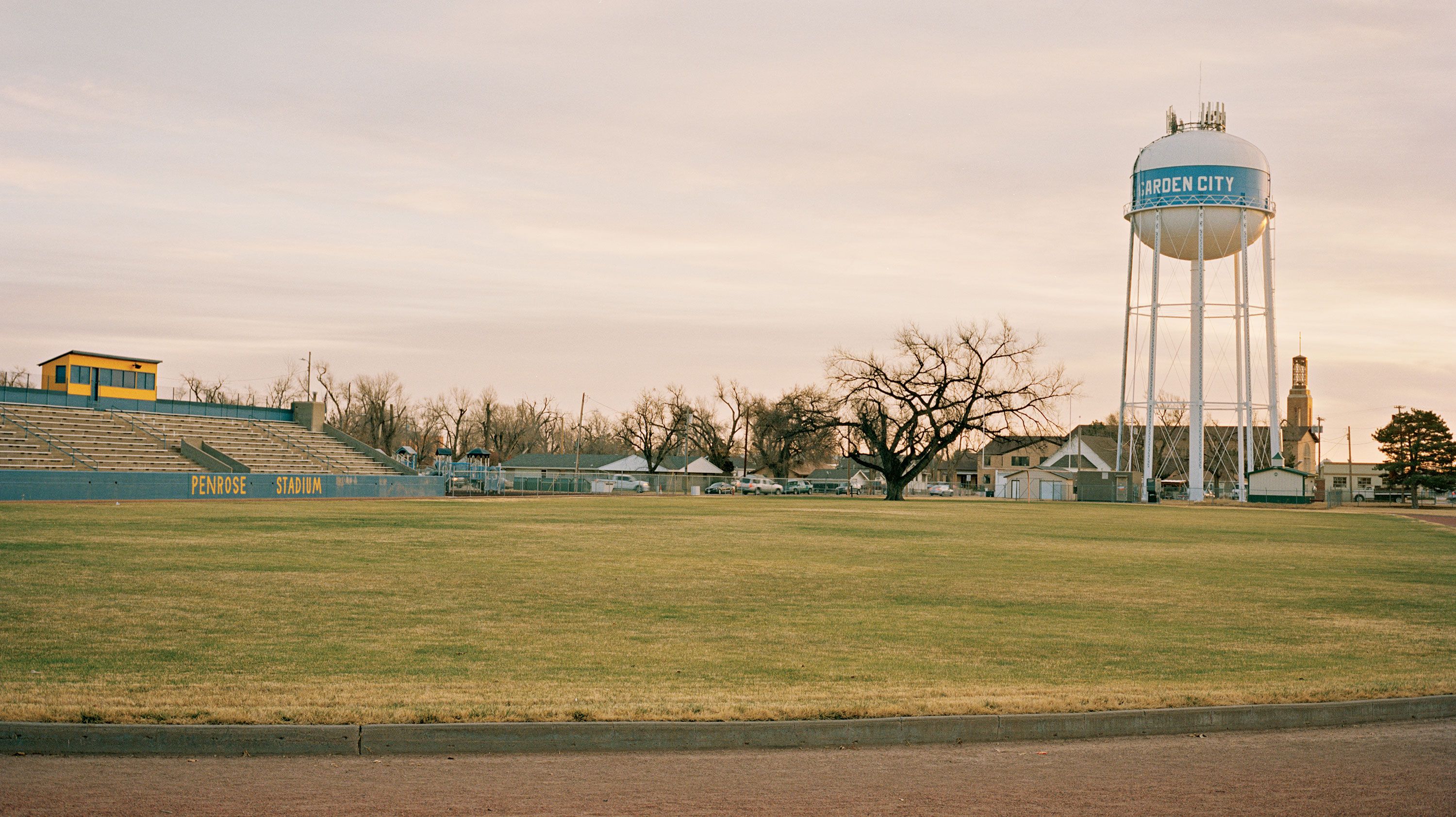
By JESSICA PRESSLER
For all of Patrick Stein’s life, Southwest Kansas — “God’s country,” he called it — had looked basically the same. Golden fields, white grain elevators, blue sky. But lately it was starting to look different. “Here come a couple of fukking raghead bytches,” Stein announced as he spotted a group of dark-skinned women in long, colorful robes and gauzy scarves walking up the avenue named for the great frontiersman Buffalo Jones. His buddy Dan Day, with whom he had attended a Garden City gun show that day — February 27, 2016 — slowed his truck. Stein, who was sitting in the passenger seat, poked his head out the window, and by the time he spat those last two words — raghead bytches — he was close enough that the women, startled, lifted their eyes toward the vehicle.
Men like Stein and Day — with drink-ruddy faces and ISIS HUNTING PERMIT bumper stickers — are a common feature of the landscape in Southwest Kansas, although Garden City has perhaps fewer than its neighbors Dodge City, the infamous gun-slinging town, and Liberal, which isn’t. As locals like to point out, there’s something a little different about “Garden,” which despite feeling like the middle of nowhere is populated by people from seemingly everywhere. The seat of rural Finney County, Garden City is situated in almost the exact center of the country, with attractions like the World’s Largest Hand-Dug Swimming Pool (built 1922) and the World’s Largest Hairball (discovered in the belly of a cow circa 1993). It has been a modest but consistent boomtown, host to a rotating crop of industries — sugar beets, cattle, wind turbines — that require a lot of land and a lot of people to work it. As a result, the area has always attracted immigrants, from the Mexicans who laid the tracks of the Santa Fe railroad in the early-20th century to the Japanese who arrived after the Second World War. And while there was some initial trepidation on the part of the locals, they usually found, in working side by side with the newcomers, that they shared those values considered to be midwestern: belief in God, family, and hard work. “All equal, regardless of wealth, color, or creed,” one resident boasted to Truman Capote when he visited the area in the 1960s to report In Cold Blood. “Everything the way it ought to be in a Democracy, that’s us.”
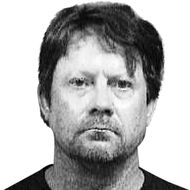
The militia splinter group “The Crusaders”: Patrick Stein. Photo: AP
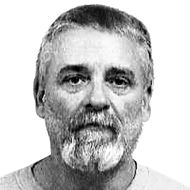
Gavin Wright.
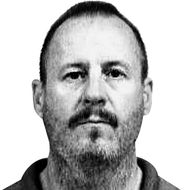
Curtis Allen.
This egalitarian spirit prevailed through the 1980s, when big meatpacking companies relocated to the area, bringing with them a wave of workers from Vietnam and Cambodia. Members of the police department underwent cultural-awareness training, learning to do things like take their shoes off when entering Asian households. When the International Rescue Committee opened an office in Garden City in 2014, headed by a no-nonsense former refugee named Amy Longa, and resettled over 200 transplants from war-torn countries like Somalia into jobs at the meatpacking plants, the police reached out to the elder males in the groups, to earn their trust. “To make sure that everybody is part of a community,” as Chief Michael Utz put it. Garden City became what NPR called “an unlikely progressive town.” Newspaper headlines regularly referred to it as an exemplar of “America’s future,” and although the area had long suffered its share of “brain drain,” its reputation drew a new class of educated millennials. Like John Birky, a young physician, and his wife, Lisa, Kansas natives who had spent time in Africa and moved back specifically to work with the refugees; and Benjamin Anderson, the 30-something CEO of a nearby hospital, who sold incoming interns on “the idea of America as a mission field” and espoused a philosophy of “unconditional radical love.” Thanks in part to their efforts, moonfaced med students could be found slurping pho in the area’s Vietnamese restaurants and trying on guntiino at one of two stores selling African goods. Main Street, which had languished after the arrival of chains like Buffalo Wild Wings, was showing new signs of life, and the Chamber of Commerce had come up with a logo that reflected the town’s multiculturalism: THE WORLD GROWS HERE, accompanied by a picture of a yucca plant with leaves the colors of the rainbow.
But not everyone was willing to accept this vision of America’s future. Most famously: Donald Trump, then running for the Republican nomination for president, who had made it clear that he saw immigrants, particularly Muslims, as the enemy.
As Stein and Day rolled through town, a speech Trump had given a few days earlier — praising the (apocryphal) methods of a U.S. general in dispensing with Muslim opponents in the Philippine-American War — was still playing on conservative radio. “He took 50 bullets, and he dipped them in pig’s blood,” he’d told the crowd. “And he had his men load their rifles, and he lined up the 50 people, and they shot 49 of those people. And the 50th person, he said: ‘You go back to your people, and you tell them what happened.’ ”
Looking out the window, Stein caught the eye of one of the Somali women. On the seat next to him was a pistol and next to that an automatic rifle with ten rounds of ammunition. If he wanted to, he could splatter her and her friend’s brains all over the sidewalk right then and there. Raghead bytch.
The moment passed. The woman averted her eyes. Stein relaxed his grip on his gun. There was no upside in acting impulsively, he reminded himself. Whatever they decided to do had to be carefully planned. And when the world saw it, they would be hailed as heroes.
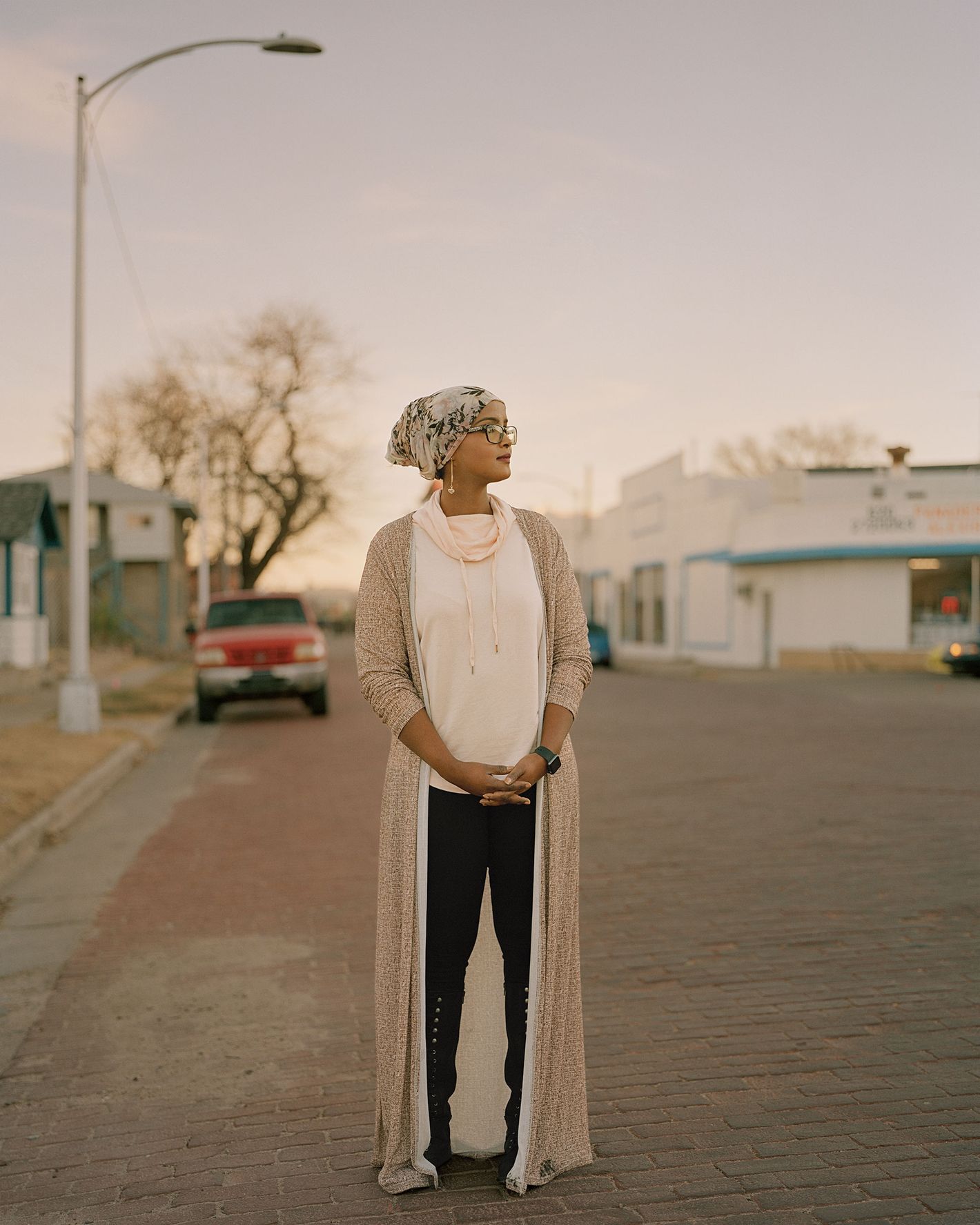
Ifrah Ahmed.
A few blocks away, Ifrah Ahmed was sitting cross-legged on a cushion in her apartment, packing a hookah pipe with sweet strawberry tobacco. Ifrah wasn’t supposed to smoke hookah, because she was a woman, but as Ifrah — and Beyoncé, of whom she was a fan — liked to say, she was an “independent woman.” She had been so ever since the day her mother told her, at age 14, that she was engaged to be married. You’re going to be happy, her mother said, as Ifrah cried her eyes out. That’s what you are born for. Everybody does it.
Not Ifrah, who later that night stole her mom’s keys and sneaked out of the house in Nairobi, where they’d lived since the Somalian government had collapsed in 1991. She spent the night in a mosque near the bus station and, through the charity of the imam and his congregation, bought a bus ticket to Uganda, where she bribed her way across the border, ending up in Nakivale, considered to be one of the nicer refugee camps in the world. “Everybody is just humble and kind and nice,” she recalled. “You don’t eat, you eat with the neighbors. The neighbors don’t eat, they eat with you.”
Ifrah’s people skills and proficiency with languages — in addition to Somali, she speaks Swahili, English, and some Arabic — made her useful to the camp’s administrators, and she was working as a translator for the U.N. when she got a call, at age 21, informing her she could come to America — specifically, Kansas City — as a refugee. From there, she made her way to Garden City, where her cousin worked for Tyson Foods. Ifrah got a job there, too, as a quality-control inspector. But it wasn’t long before her supervisors recognized in her the same traits the U.N. had, and soon she was being called off the production line to help them communicate with their African workers.
Garden City was a small town, but she liked it. It was peaceful, and friendly. But in the lead-up to the presidential election, the atmosphere started to feel a little different, the way it had right before Ifrah saw her first tornado darken the sky. Down at the African Shop, detectives Benson and Stabler solved crimes on mute while people fretted over the things Donald Trump was saying about Muslims. Ifrah didn’t want to think the people she’d lived among believed him. At the same time, she’d noticed a shift in the way she was treated. Like the suspicious employee who’d followed her through Target, where she’d long been a regular. And Mimi, the trans woman, and her cousin Ghasak, who liked to go to the club and dance on the weekends, said one night the DJ had trained his spotlight on them and said he hoped Trump would “make America great again.” They’d laughed about it, but Ifrah was worried. Many of her supervisors supported him. Even this veterinarian she worked with — a nice vet, who’d been to Africa — had gone to one of his rallies and taken a picture with the guy.
“He doesn’t really mean all immigrants,” he’d said as he inspected a cow. “He just means illegal immigrants.”
“Just because they are illegal doesn’t mean they are going to harm you,” said Ifrah, thinking of a friend from Mexico. “They’re here because they want a better life for their kids.”
The vet shrugged. “He just talks,” he said. “It’s not like he’s gonna do it.” Then he patted the cow on the hindquarters and sent it out to meet its fate
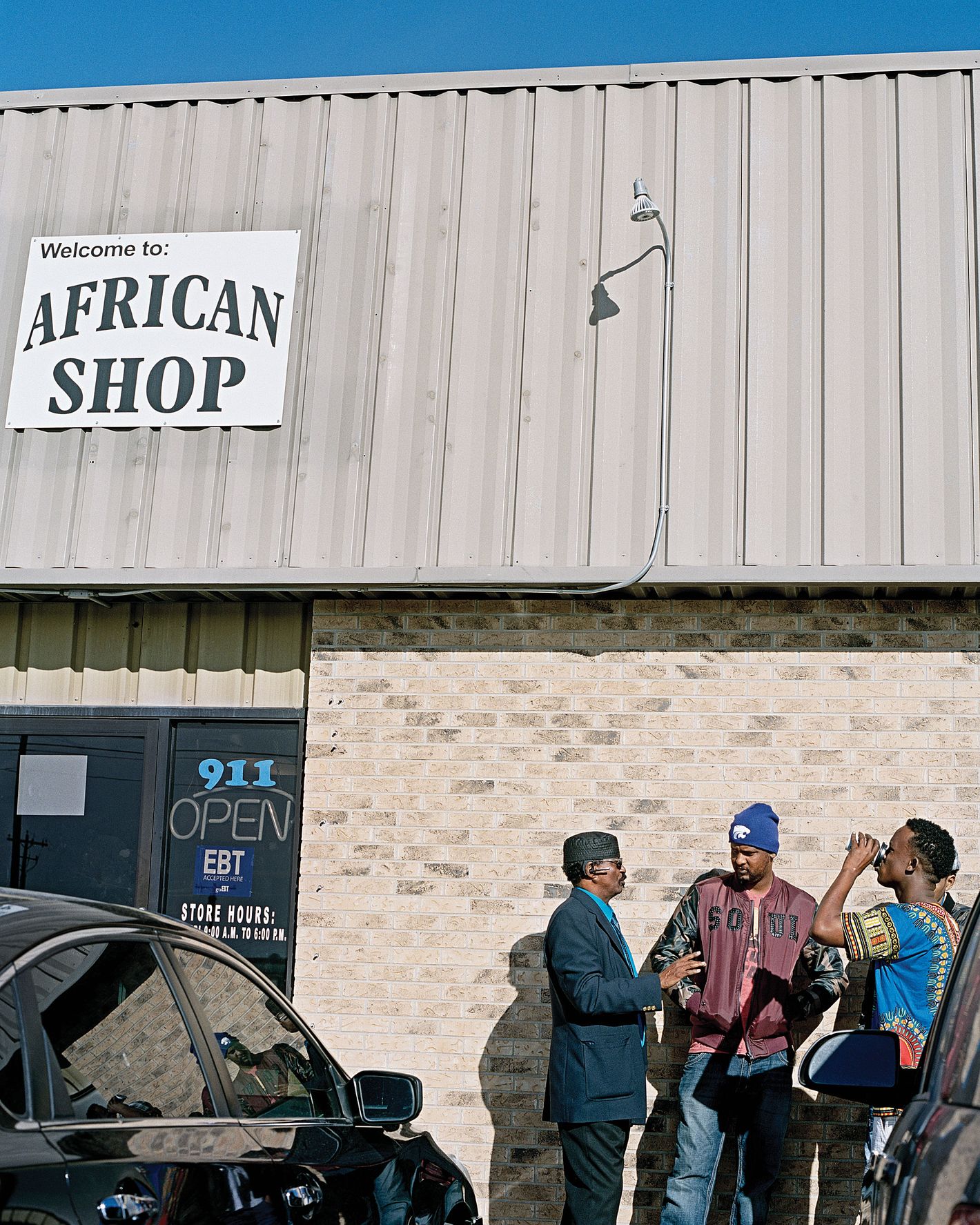
Somali refugees outside the African Shop in Garden City
As far as Patrick Stein was concerned, Donald Trump was “the Man.” Stein had grown up in Wright, Kansas, a tiny town outside Dodge City (“Maybe 450 to 500 people, if you count cats and dogs”) where “everybody knew everybody” and “you could always count on your neighbor.” His parents ran a farm and expected their six children to help out with the chores while they worked day jobs. In between, there was church, lots of it, including a Catholic Mass every morning before school. Stein was an altar boy. “It was a pain in my ass,” he said in his flat drawl. “But it was all right. You get good morals and good values.”
One could argue that when it came to Patrick, these didn’t stick. He was bright and charming: a good-looking kid, with sandy hair, a snub nose, and roguish blue eyes. But the slow country life didn’t suit him. He had a taste for action — fast cars, loud music, big guns. Marriage and two sons failed to settle him down, and in 1998, Stein allegedly forced his way into the home of a drug dealer who’d sold him some bum crystal meth and threatened “a bloodbath” if he didn’t get his money back. He left with the dealer’s mother’s gun as collateral, and when she called the police and told them it was missing, Stein was arrested. For a long while, the cops had taken it easy on him, “on account of everyone knowing each other,” he says. But it wasn’t clear he’d be able to avoid jail much longer: “Between the cops and a vindictive female, I couldn’t sneeze in the wrong direction.” It was time to, as they say, get out of Dodge. He went to Nebraska, where he “ran a ranch,” then moved to Colorado Springs before ending up working construction in Arizona. That’s where he was when his mother called early on September 11, 2001, and told him to turn on the television.
“That was my game-changer,” he said. “That’s what started me paying attention to the political world, our so-called representatives, and educating myself on the individuals that threw themselves into the planes, what the ideology is.”
When the U.S. invaded Iraq and Afghanistan, Stein was happy for the chance at retribution. “I knew we were going in to kick some ass and not take names neither,” he said. He might have gone and kicked some himself had his family not, around that time, summoned him back home to Kansas. His sons were getting older, and they needed their father around. Stein didn’t care for his ex-wife — “If she was standing on a ledge or something, I might push her off” — but he acknowledged his masculine responsibility. “Better get my ass back to Kansas,” he said.
The family farm was as money-losing as ever, but Stein soon came up with an idea that he thought could reap a major windfall. President Bush had just signed the Energy Independence and Security Act, and investors were scrambling to invest in renewable fuels. Stein had done some research online, and it turned out that on the farm, they had everything they needed to produce them. “The conversion process is actually quite simple,” he told his father and brother. “If we grew our own soybeans and processed them into biodiesel, it wouldn’t cost us a dime.”
They formed a company, Torsten Energy — the name was a reference to their family’s Nordic roots — and by 2008, had raised a substantial amount from local investors, according to Stein, who claims he was on the verge of making a deal that would take him the rest of the way toward his vision: four $40 million plants silhouetted against the Kansas sky, monuments to his ingenuity. “I felt like I finally made it,” he said. “We were going to be riding on cloud nine, peaches and cream.”
Then, one morning in 2008, Stein turned on the TV. “And it was another day like 9/11,” he said. “There’s Bernanke and Bush and everyone saying the markets are crashing, the world is coming to an end, there was no more money coming, nobody was doing nothing in terms of new projects. I knew at that point we were done.”
Full article here: A Militia’s Plot to Bomb Somali Refugees in a Kansas Town
By JESSICA PRESSLER
For all of Patrick Stein’s life, Southwest Kansas — “God’s country,” he called it — had looked basically the same. Golden fields, white grain elevators, blue sky. But lately it was starting to look different. “Here come a couple of fukking raghead bytches,” Stein announced as he spotted a group of dark-skinned women in long, colorful robes and gauzy scarves walking up the avenue named for the great frontiersman Buffalo Jones. His buddy Dan Day, with whom he had attended a Garden City gun show that day — February 27, 2016 — slowed his truck. Stein, who was sitting in the passenger seat, poked his head out the window, and by the time he spat those last two words — raghead bytches — he was close enough that the women, startled, lifted their eyes toward the vehicle.
Men like Stein and Day — with drink-ruddy faces and ISIS HUNTING PERMIT bumper stickers — are a common feature of the landscape in Southwest Kansas, although Garden City has perhaps fewer than its neighbors Dodge City, the infamous gun-slinging town, and Liberal, which isn’t. As locals like to point out, there’s something a little different about “Garden,” which despite feeling like the middle of nowhere is populated by people from seemingly everywhere. The seat of rural Finney County, Garden City is situated in almost the exact center of the country, with attractions like the World’s Largest Hand-Dug Swimming Pool (built 1922) and the World’s Largest Hairball (discovered in the belly of a cow circa 1993). It has been a modest but consistent boomtown, host to a rotating crop of industries — sugar beets, cattle, wind turbines — that require a lot of land and a lot of people to work it. As a result, the area has always attracted immigrants, from the Mexicans who laid the tracks of the Santa Fe railroad in the early-20th century to the Japanese who arrived after the Second World War. And while there was some initial trepidation on the part of the locals, they usually found, in working side by side with the newcomers, that they shared those values considered to be midwestern: belief in God, family, and hard work. “All equal, regardless of wealth, color, or creed,” one resident boasted to Truman Capote when he visited the area in the 1960s to report In Cold Blood. “Everything the way it ought to be in a Democracy, that’s us.”
The militia splinter group “The Crusaders”: Patrick Stein. Photo: AP
Gavin Wright.
Curtis Allen.
This egalitarian spirit prevailed through the 1980s, when big meatpacking companies relocated to the area, bringing with them a wave of workers from Vietnam and Cambodia. Members of the police department underwent cultural-awareness training, learning to do things like take their shoes off when entering Asian households. When the International Rescue Committee opened an office in Garden City in 2014, headed by a no-nonsense former refugee named Amy Longa, and resettled over 200 transplants from war-torn countries like Somalia into jobs at the meatpacking plants, the police reached out to the elder males in the groups, to earn their trust. “To make sure that everybody is part of a community,” as Chief Michael Utz put it. Garden City became what NPR called “an unlikely progressive town.” Newspaper headlines regularly referred to it as an exemplar of “America’s future,” and although the area had long suffered its share of “brain drain,” its reputation drew a new class of educated millennials. Like John Birky, a young physician, and his wife, Lisa, Kansas natives who had spent time in Africa and moved back specifically to work with the refugees; and Benjamin Anderson, the 30-something CEO of a nearby hospital, who sold incoming interns on “the idea of America as a mission field” and espoused a philosophy of “unconditional radical love.” Thanks in part to their efforts, moonfaced med students could be found slurping pho in the area’s Vietnamese restaurants and trying on guntiino at one of two stores selling African goods. Main Street, which had languished after the arrival of chains like Buffalo Wild Wings, was showing new signs of life, and the Chamber of Commerce had come up with a logo that reflected the town’s multiculturalism: THE WORLD GROWS HERE, accompanied by a picture of a yucca plant with leaves the colors of the rainbow.
But not everyone was willing to accept this vision of America’s future. Most famously: Donald Trump, then running for the Republican nomination for president, who had made it clear that he saw immigrants, particularly Muslims, as the enemy.
As Stein and Day rolled through town, a speech Trump had given a few days earlier — praising the (apocryphal) methods of a U.S. general in dispensing with Muslim opponents in the Philippine-American War — was still playing on conservative radio. “He took 50 bullets, and he dipped them in pig’s blood,” he’d told the crowd. “And he had his men load their rifles, and he lined up the 50 people, and they shot 49 of those people. And the 50th person, he said: ‘You go back to your people, and you tell them what happened.’ ”
Looking out the window, Stein caught the eye of one of the Somali women. On the seat next to him was a pistol and next to that an automatic rifle with ten rounds of ammunition. If he wanted to, he could splatter her and her friend’s brains all over the sidewalk right then and there. Raghead bytch.
The moment passed. The woman averted her eyes. Stein relaxed his grip on his gun. There was no upside in acting impulsively, he reminded himself. Whatever they decided to do had to be carefully planned. And when the world saw it, they would be hailed as heroes.
Ifrah Ahmed.
A few blocks away, Ifrah Ahmed was sitting cross-legged on a cushion in her apartment, packing a hookah pipe with sweet strawberry tobacco. Ifrah wasn’t supposed to smoke hookah, because she was a woman, but as Ifrah — and Beyoncé, of whom she was a fan — liked to say, she was an “independent woman.” She had been so ever since the day her mother told her, at age 14, that she was engaged to be married. You’re going to be happy, her mother said, as Ifrah cried her eyes out. That’s what you are born for. Everybody does it.
Not Ifrah, who later that night stole her mom’s keys and sneaked out of the house in Nairobi, where they’d lived since the Somalian government had collapsed in 1991. She spent the night in a mosque near the bus station and, through the charity of the imam and his congregation, bought a bus ticket to Uganda, where she bribed her way across the border, ending up in Nakivale, considered to be one of the nicer refugee camps in the world. “Everybody is just humble and kind and nice,” she recalled. “You don’t eat, you eat with the neighbors. The neighbors don’t eat, they eat with you.”
Ifrah’s people skills and proficiency with languages — in addition to Somali, she speaks Swahili, English, and some Arabic — made her useful to the camp’s administrators, and she was working as a translator for the U.N. when she got a call, at age 21, informing her she could come to America — specifically, Kansas City — as a refugee. From there, she made her way to Garden City, where her cousin worked for Tyson Foods. Ifrah got a job there, too, as a quality-control inspector. But it wasn’t long before her supervisors recognized in her the same traits the U.N. had, and soon she was being called off the production line to help them communicate with their African workers.
Garden City was a small town, but she liked it. It was peaceful, and friendly. But in the lead-up to the presidential election, the atmosphere started to feel a little different, the way it had right before Ifrah saw her first tornado darken the sky. Down at the African Shop, detectives Benson and Stabler solved crimes on mute while people fretted over the things Donald Trump was saying about Muslims. Ifrah didn’t want to think the people she’d lived among believed him. At the same time, she’d noticed a shift in the way she was treated. Like the suspicious employee who’d followed her through Target, where she’d long been a regular. And Mimi, the trans woman, and her cousin Ghasak, who liked to go to the club and dance on the weekends, said one night the DJ had trained his spotlight on them and said he hoped Trump would “make America great again.” They’d laughed about it, but Ifrah was worried. Many of her supervisors supported him. Even this veterinarian she worked with — a nice vet, who’d been to Africa — had gone to one of his rallies and taken a picture with the guy.
“He doesn’t really mean all immigrants,” he’d said as he inspected a cow. “He just means illegal immigrants.”
“Just because they are illegal doesn’t mean they are going to harm you,” said Ifrah, thinking of a friend from Mexico. “They’re here because they want a better life for their kids.”
The vet shrugged. “He just talks,” he said. “It’s not like he’s gonna do it.” Then he patted the cow on the hindquarters and sent it out to meet its fate
Somali refugees outside the African Shop in Garden City
As far as Patrick Stein was concerned, Donald Trump was “the Man.” Stein had grown up in Wright, Kansas, a tiny town outside Dodge City (“Maybe 450 to 500 people, if you count cats and dogs”) where “everybody knew everybody” and “you could always count on your neighbor.” His parents ran a farm and expected their six children to help out with the chores while they worked day jobs. In between, there was church, lots of it, including a Catholic Mass every morning before school. Stein was an altar boy. “It was a pain in my ass,” he said in his flat drawl. “But it was all right. You get good morals and good values.”
One could argue that when it came to Patrick, these didn’t stick. He was bright and charming: a good-looking kid, with sandy hair, a snub nose, and roguish blue eyes. But the slow country life didn’t suit him. He had a taste for action — fast cars, loud music, big guns. Marriage and two sons failed to settle him down, and in 1998, Stein allegedly forced his way into the home of a drug dealer who’d sold him some bum crystal meth and threatened “a bloodbath” if he didn’t get his money back. He left with the dealer’s mother’s gun as collateral, and when she called the police and told them it was missing, Stein was arrested. For a long while, the cops had taken it easy on him, “on account of everyone knowing each other,” he says. But it wasn’t clear he’d be able to avoid jail much longer: “Between the cops and a vindictive female, I couldn’t sneeze in the wrong direction.” It was time to, as they say, get out of Dodge. He went to Nebraska, where he “ran a ranch,” then moved to Colorado Springs before ending up working construction in Arizona. That’s where he was when his mother called early on September 11, 2001, and told him to turn on the television.
“That was my game-changer,” he said. “That’s what started me paying attention to the political world, our so-called representatives, and educating myself on the individuals that threw themselves into the planes, what the ideology is.”
When the U.S. invaded Iraq and Afghanistan, Stein was happy for the chance at retribution. “I knew we were going in to kick some ass and not take names neither,” he said. He might have gone and kicked some himself had his family not, around that time, summoned him back home to Kansas. His sons were getting older, and they needed their father around. Stein didn’t care for his ex-wife — “If she was standing on a ledge or something, I might push her off” — but he acknowledged his masculine responsibility. “Better get my ass back to Kansas,” he said.
The family farm was as money-losing as ever, but Stein soon came up with an idea that he thought could reap a major windfall. President Bush had just signed the Energy Independence and Security Act, and investors were scrambling to invest in renewable fuels. Stein had done some research online, and it turned out that on the farm, they had everything they needed to produce them. “The conversion process is actually quite simple,” he told his father and brother. “If we grew our own soybeans and processed them into biodiesel, it wouldn’t cost us a dime.”
They formed a company, Torsten Energy — the name was a reference to their family’s Nordic roots — and by 2008, had raised a substantial amount from local investors, according to Stein, who claims he was on the verge of making a deal that would take him the rest of the way toward his vision: four $40 million plants silhouetted against the Kansas sky, monuments to his ingenuity. “I felt like I finally made it,” he said. “We were going to be riding on cloud nine, peaches and cream.”
Then, one morning in 2008, Stein turned on the TV. “And it was another day like 9/11,” he said. “There’s Bernanke and Bush and everyone saying the markets are crashing, the world is coming to an end, there was no more money coming, nobody was doing nothing in terms of new projects. I knew at that point we were done.”
Full article here: A Militia’s Plot to Bomb Somali Refugees in a Kansas Town